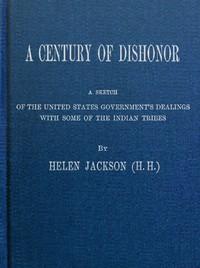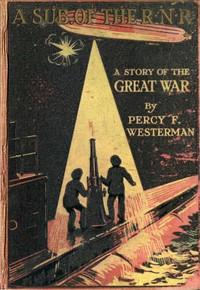Read this ebook for free! No credit card needed, absolutely nothing to pay.
Words: 28775 in 10 pages
This is an ebook sharing website. You can read the uploaded ebooks for free here. No credit cards needed, nothing to pay. If you want to own a digital copy of the ebook, or want to read offline with your favorite ebook-reader, then you can choose to buy and download the ebook.


: A Century of Dishonor A Sketch of the United States Government's Dealings with Some of the Indian Tribes by Jackson Helen Hunt - United States Politics and government; Indians of North America Government relations; United States Race relations; Indians Tr
BYGONES WORTH REMEMBERING
"The best prophet of the future is the past."
Lord Byron
New York E. P. Dutton And Company
PREFACE If the preface of a book be a plea to the reader, its force must lie in the aims of the author. In the following pages his main aim has been to be of service to somebody. That is a principle, which, amid the ravelment, perplexity, and entanglements of the world, always finds a pathway open. Such a principle is as an All-Seeing Eye, to which he who acknowledges it, is amenable, since it makes plain to him the devious, time-serving byways he should avoid.
The writer has no interest, no taste, no trust, save in definite, verifiable ideas. His aim has been to keep clear of the Sin of Pretension, which consists in declaring, or assuming to be true, that which the writer or speaker does not know to be true. What errors negligence of this rule has bred! What misdirection it has perpetuated! Into how many labyrinths, where truth was not to be found, has it led men! What can be more useful, or holier, than inciting the reader to beware of pretension in speech, in morals, in politics, and in piety? To keep as clear as possible of this universal sin may serve many and mislead none.
Professor Jowett has told us that "where Inquiry is denied at the door, Doubt gets in at the window." This is the way it came to the writer of this preface, and accounts for a certain liberty of expression the reader may meet with, if he ventures further into these pages.
A sentence of Mr. Allen Upward will sufficiently describe the spirit of this book: "Let us try to tolerate each other instead of trying to convert each other." The author disclaims belonging to that class who have "great expectations," which are as vain in literature as in life. The utmost the author looks forward to is that semi-friendly applause which is accorded to a platform speaker, not so much for any merit in his oration as for his unexpected consideration for the audience by concluding.
G. J. HOLYOAKE.
It was a saying of Dryden that "Anything, though ever so little, which a man speaks of himself, in my opinion, is still too much." This depends upon what a writer says. No man is required to give an opinion of himself. Others will do that much better, if he will wait But if a man may not speak of himself at all--reports of adventure, of personal endeavour, or of service, will be largely impossible. To relate is not to praise. The two things are quite distinct. Othello's imperishable narrative of his love of Desdemona contained no eulogy of himself. A story of observation, of experience, or of effort, or estimate of men or of opinions, I may venture upon--is written for the reader alone. The writer will be an entirely negligible quantity.
Lord Rosebery, who can make proverbs as well as cite them, lately recalled one which has had great vogue in its day, namely, "Let bygones be bygones." Life would be impossible or very unpleasant if every one persisted in remembering what had better be forgotten. Proverbs are like plants: they have a soil and climate under which alone they flourish. Noble maxims have their limitations. Few have universal applicability. If, for instance, the advice to "let bygones be bygones" be taken as universally true, strange questions arise. Are mistakes never more to teach us what to avoid? Are the errors of others no more to be a warning to us? Is the Book of Experience to be closed? Is no more history to be written? If so philosophy could no longer teach wisdom by examples, for there would no longer be any examples to go upon. If all the mistakes of mankind and all the miscalculations of circumstance be forgotten, the warnings of the sages will die with them.
He who has debts, or loans not repaid, or promises not kept, or contracts unfulfilled in his memory, had better keep them there until he has made what reparation he can. The Bygone proverb does not apply to him. There are other derelictions of greater gravity than fall under the head of intellectual petty larceny, such as the conscious abandonment of principle, or desertion of a just cause, which had better be kept in mind for rectification.
Free books android app tbrJar TBR JAR Read Free books online gutenberg
More posts by @FreeBooks


: Silver Cross by Johnston Mary - Historical fiction; Great Britain History Henry VII 1485-1509 Fiction







